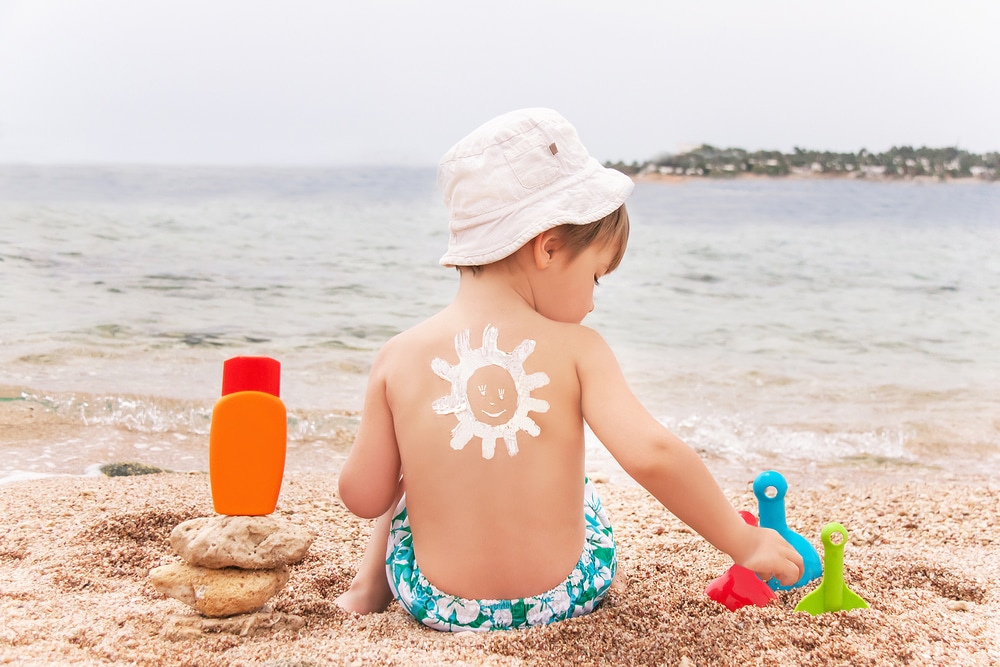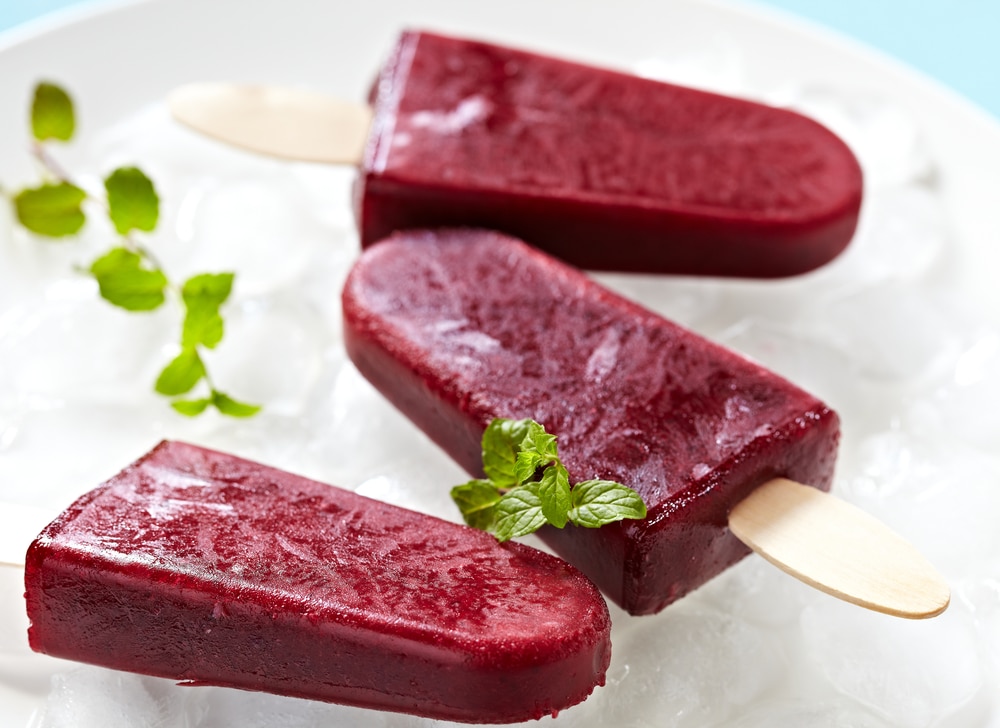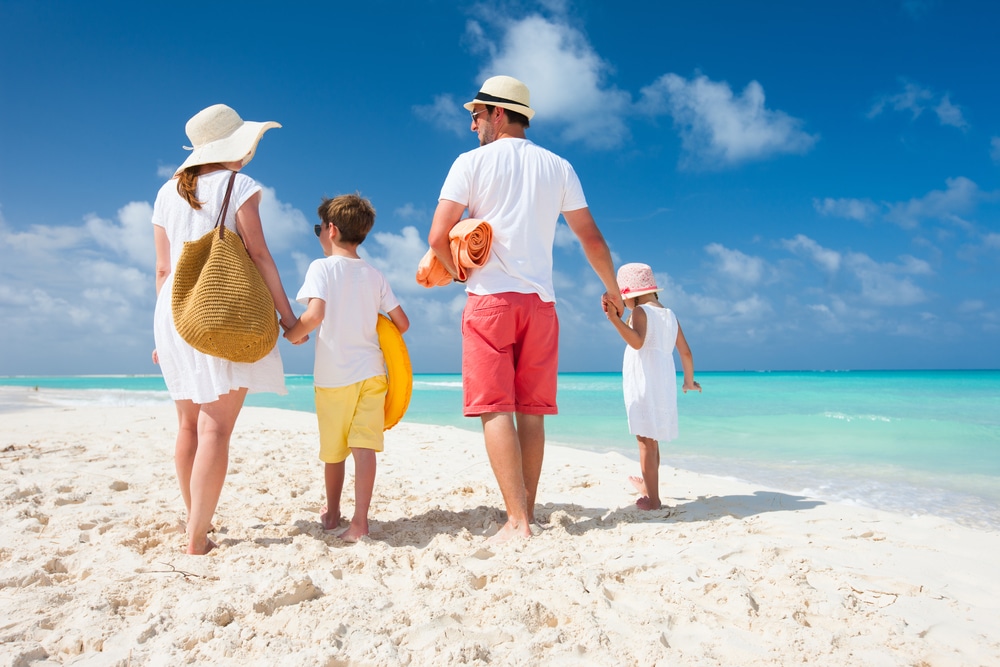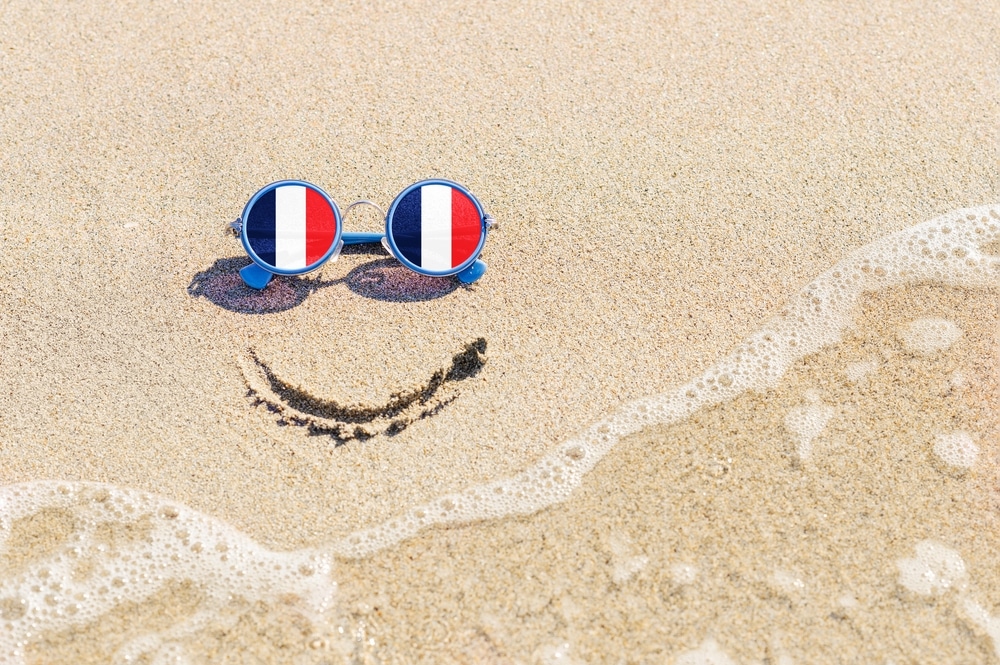
French Summer Vocabulary: 75 Common Words and Phrases for the Season
If you’re spending a summer in France, or any other season when people will inevitably talk about the delights of summer, you’ll need to know some key vocabulary.
In this post, you’ll learn 75 useful French summer vocabulary terms that paint a vivid picture of the season.
From the weather and clothes to treats and activities, these vocabulary words and phrases will greatly improve your ability to communicate.
Plus, get to know French culture and traditions a bit better with some expressions about summer in France.
Contents
- Useful Summer Words in French
- Popular Activities
- The Weather
- Clothes and Accessories
- Food and Drinks
- Summer Expressions in French
- And one more thing...
Download: This blog post is available as a convenient and portable PDF that you can take anywhere. Click here to get a copy. (Download)
Useful Summer Words in French
To start us off, here are some common French summer vocabulary words that are likely to come in handy at some point.
| French | English |
|---|---|
| l'été | summer *Be sure to pay attention to the context in which été is used, because it's also used as the past participle of the verb être (to be). |
| un coup de soleil | a sunburn In French, we say "attraper un coup de soleil," which translates to "to catch a sunburn." |
| la plage | the beach |
| la mer | the sea |
| le sable | sand |
| le palmier | palm tree |
| le coquillage | seashell |
| le coucher de soleil | sunset |
| les moustiques une piqûre de moustique se faire bouffer par les moustiques | mosquitos a mosquito bite to get eaten up by mosquitos |
Popular Activities
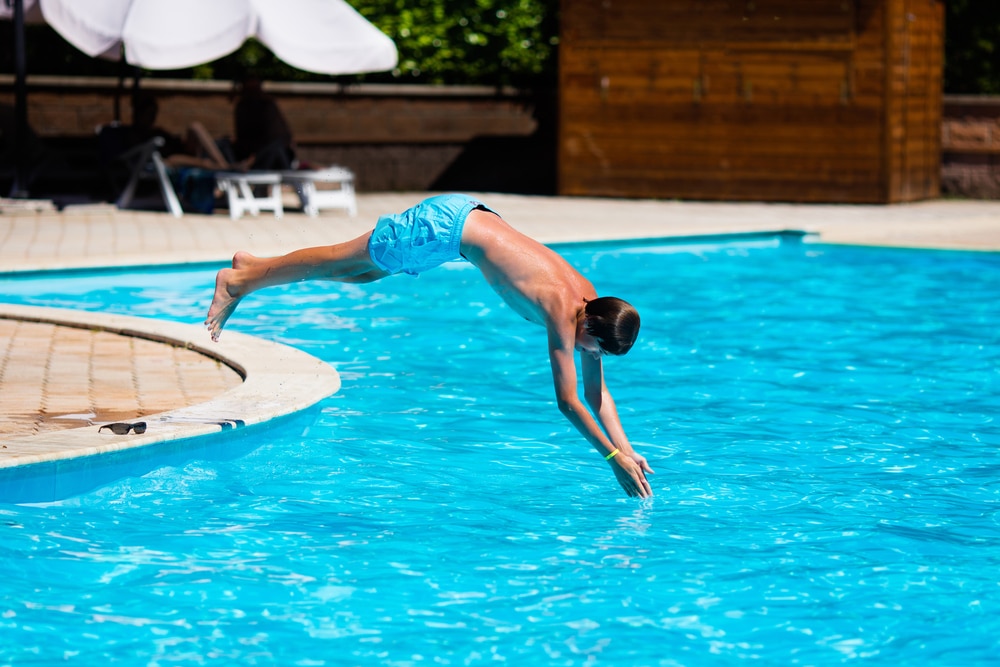
Hopefully, you can participate in a few of these fun summer activities while you’re in France or another French-speaking country.
| French | English |
|---|---|
| nager se baigner | to swim (for exercise) to swim (for leisure), to bathe |
| faire de la plongée | to dive |
| aller à la plage | to go to the beach |
| se bronzer | to sunbathe |
| jouer au beach volley | to play beach volleyball |
| faire un pique-nique | to have a picnic |
| faire du vélo | to cycle |
| faire du camping | to camp |
| faire de la randonnée | to hike |
| faire de la voile | to sail |
| assister à des festivals en plein air | to attend outdoor festivals |
| faire un barbecue | to barbecue |
| faire du surf/surfer | to surf |
| faire du ski nautique | to water ski |
The Weather
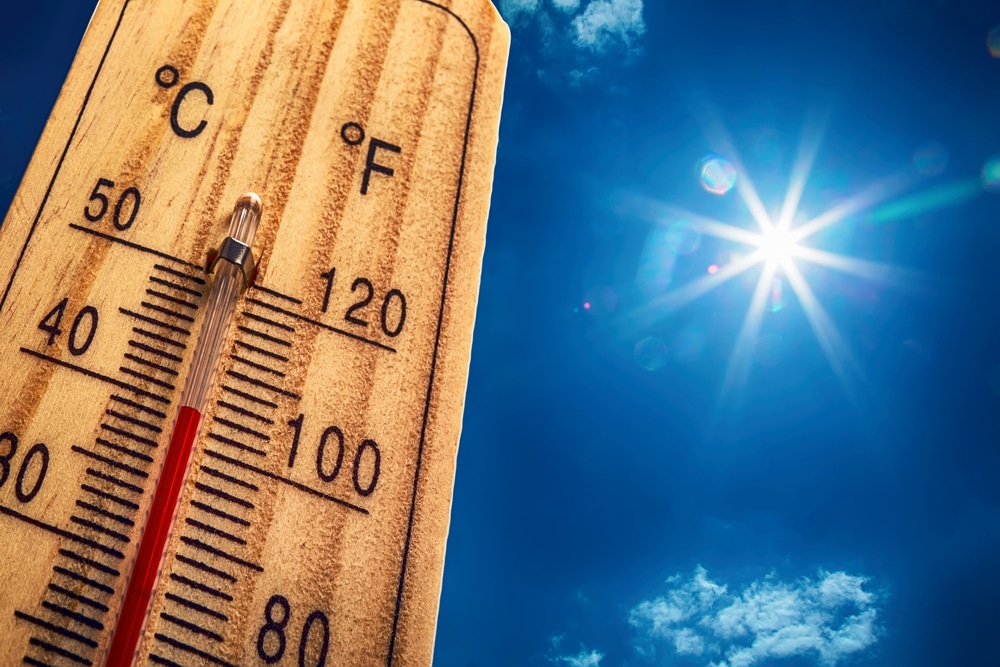
Summer temperatures can get pretty high in France, and with this vocabulary, you can join in on some small talk about the weather with French speakers.
| French | English |
|---|---|
| chaud | hot *In French, we use the verb "to have" (avoir) rather than "to be" to say we're hot, so "I'm hot" is "J'ai chaud" |
| le soleil | the sun |
| ensoleillé | sunny |
| la chaleur | heat |
| une canicule | a heatwave |
| étouffant | sweltering |
| le ciel dégagé | clear sky |
| une température élevée | high temperature |
| une brise légère | light breeze |
| une sécheresse | drought |
| une averse estivale | summer shower |
Clothes and Accessories

If you forget to pack any of these summer essentials for your trip to France, now you can ask a local where you can buy them!
| French | English |
|---|---|
| un maillot un maillot de bain | a swimsuit a swimsuit (more formal version) |
| un débardeur | a tank top |
| un short | shorts |
| un chapeau de soleil | a sun hat |
| un bob | a bucket hat |
| des tongs | flip-flops |
| des sandales | sandals |
| des lunettes de soleil | sunglasses |
| la crème solaire | sunscreen |
Food and Drinks
As you can see, we use the same or similar words for many of these foods and drinks in English.
| French | English |
|---|---|
| la crème glacée , la glace | ice cream Although glace also translates to "ice," everyone says and understands it to be "ice cream." |
| le sorbet | sorbet |
| la limonade | lemonade |
| les fraises | strawberries |
| la tarte aux fruits | fruit tart |
| les crêpes | crepes |
| la salade estivale | summer salad |
| la salade niçoise | Nicoise salad |
| les moules frites | mussels and fries |
| la baguette au fromage | baguette with cheese |
| le rosé | rosé |
One note on summer drinks in France: It’s pretty uncommon to be served a drink with ice in France unless you’ve specifically requested it. And even then, sometimes the restaurant won’t have it.
But it doesn’t hurt to ask, so when the temperature rises and you really want that icy drink, you can use this phrase:
avec des glaçons, s’il vous plait (with ice, please)
FluentU takes authentic videos—like music videos, movie trailers, news and inspiring talks—and turns them into personalized language learning lessons.
You can try FluentU for free for 2 weeks. Check out the website or download the iOS app or Android app.
P.S. Click here to take advantage of our current sale! (Expires at the end of this month.)
Summer Expressions in French
En vacances — On vacation
Like most places, the French take time off in the summer. Neighboring Spain, northern Africa and seaside spots down south are all popular summer destinations.
Nous partons en vacances à la plage demain matin. (We’re going on vacation to the beach tomorrow morning.)
Les grandes vacances — Summer vacation
Traditionally in the summer, many people in France will take up to three weeks of their mandatory five paid vacation weeks per year, meaning the rest of life in the country slows to a crawl.
Pendant les grandes vacances, nous aimons partir en famille à la plage. (During the summer vacation, we like to go to the beach as a family.)
Passer à l’heure d’été — To switch to daylight saving time
Instead of changing to daylight-saving time, the French have a much more poetic saying for putting the clocks forward: “passer à l’heure d’été,” which literally translates to “passing to summertime.”
Likewise, in the fall, the country passes back to winter time ( passer à l’heure d’hiver ).
Ce week-end, nous allons passer à l’heure d’été. (This weekend, we’re going to switch to daylight saving time.)
La fête nationale — The national holiday (Bastille Day)
Although English-speaking countries refer to France’s national holiday on July 14 as Bastille Day, it’s known in France rather unoriginally as “the national holiday” (la fête nationale).
Le 14 juillet est un jour férié en France pour célébrer la fête nationale. (July 14th is a public holiday in France to celebrate Bastille Day.)
Faire le pont — Make the bridge (to have a four-day weekend)
Spring and summer in France are chock-full of national holidays. When these holidays fall on Thursdays or Tuesdays, the French will say that they’re “making the bridge” (faire le pont) between the holiday and the weekend by taking the extra day off to make a four-day weekend.
La fête nationale tombe un mardi donc on peut faire le pont. (Bastille Day falls on a Tuesday so we can have a four-day weekend.)
La fermeture annuelle — Annual closing
As people leave the city for their annual summer vacation, many shops in France close their doors for the month. Don’t be surprised to see storefronts shuttered with signs reading:
Fermeture annuelle : réouverture en septembre (Annual closing: reopening in September).
Se mettre au vert — To get out into the countryside
This expression, which literally means “to put oneself in the green,” is used in the summer months when French people leave the city for the tranquility and natural beauty of the countryside.
Just be aware: the expression can also mean that you’re escaping to the countryside to lay low because the police are after you!
Après une semaine de travail intense, il est temps de se mettre au vert pour se détendre. (After a busy workweek, it’s time to get out into the countryside to relax.)
La mer ou la montagne ? — The ocean or the mountains?
It’s the perpetual summer dilemma! Work has ceased, the sun is shining and the humidity is rising. Are you going to cool off at the ocean or get some fresh air and great views in the mountains?
Chaque année, nous avons du mal à décider : la mer ou la montagne ? (Every year, we struggle to decide: the sea or the mountains?)
Il fait beau — The weather is nice
This is an expression that aptly describes a summer in France. The phrase literally translates to “It makes beautiful,” but the phrase is a set French expression that’s used to describe the weather.
On a more familiar level, the expression can be likened to “what a beautiful day” or “it’s beautiful out.”
Quand il fait beau, vous pourrez manger en terrasse. (When the weather is nice, you can eat on the terrace.)
Faire la grève — To go on strike
Summer is not just the time for vacationing, but also going on strike. As soon as the days begin to get longer and the temperatures warmer, the number of strikes in the country always seems to spike.
Les ouvriers ont fait grève pour demander de meilleures conditions de travail. (The workers went on strike to demand better working conditions.)
Êtes-vous juilletiste ou aoûtien ? — Are you a Julyist or Augustian?
Whether you choose to go on holiday in July or August may say more about you than you think, at least to the French. August is when most French will typically take their vacation.
July vacation goers (juilletistes) are thus often seen as somewhat rebellious, and see August vacation goes (aoûtien) as suckers that go on vacation at the same time as everyone else when prices are the highest.
Juilletistes tend to be younger and more active, favoring adventurous vacations over the beach, while aoûtiens include many older holiday goers and blue-collar workers.
Êtes-vous juilletiste ou aoûtien ? (Are you a Julyist or Augustian?)
Je suis un fier juilletiste : j’économise toujours de l’argent sur mes vacances d’été ! (I’m a proud Julyist—I always save money on my summer vacation!)
Transpirer comme un bœuf/une vache — Sweat like a steer/cow
Sweating is an inevitable part of summer anywhere that sees temperatures rise exponentially. The most common expression in French is “to sweat like an oxen” (transpirer comme un bœuf) or, for the ladies, “to sweat like a cow” (une vache).
Il faisait tellement chaud pendant la randonnée que nous avons transpiré comme des bœufs. (It was so hot during the hike that we sweat like oxen.)
Il fait une chaleur à crever ! — It’s scorching hot!
When the classic il fait chaud (it’s hot) just isn’t enough to describe the blistering heat, you can impress your French friends by using this dramatic expression. It translates loosely to “It’s scorching hot,” “It’s hot as hell” or even “It’s so hot I might die!”
Je n’ai pas pu dormir cette nuit, il fait une chaleur à crever dans ma chambre. (I couldn’t sleep last night; it’s unbearably hot in my room.)
Bison Futé voit vert/orange/rouge/noir — Smart Bison sees green/orange/red/black
Because so many French people take their vacation around the same time, the massive exodus from major cities (known as le grand départ ) can put major strains on the country’s highway system.
In 1975, the National Center for Roadway Information unveiled Bison Futé, a cartoon character that gives color-coded traffic alerts and looks oddly (and problematically) like a Native American.
This system is still used today (although the logo was recently updated). So when bison futé sees orange, you should plan ahead; red, better plan for several extra hours; and black, best to find another mode of transportation!
Bison Futé voit orange sur les routes principales en ce week-end de départ en vacances. (Bison Futé sees orange on the major roads on this holiday departure weekend.)
Un amour d’été — A summer romance
Something about summer just lends itself to fleeting romances, whether it be the change of scenery or the promise of no long-term commitment.
If your vacation plans in France could include a summer romance, you might want to brush up on your romantic French vocabulary.
Elle l’a rencontré lors de son voyage à Paris. C’était un amour d’été qu’elle n’oubliera jamais ! (She met him during her trip to Paris. It was a summer romance she’ll never forget!)
Bonne rentrée — Good return/Welcome back
All good things must eventually come to an end, including summer vacation. Bonne rentrée can mean many things depending on who you say it to.
For children or teachers it translates generally as “welcome back to class,” while for those returning to jobs, it means “wishing you a successful return to work.”
J’espère que tu as passé de bonnes vacances. Bonne rentrée à l’école demain ! (I hope you had a good vacation. Have a good first day back at school tomorrow!)
Summer is fantastic in France, and now you have the vocabulary to talk about it.
With these words and phrases, keeping a cool head when handling the heat will be far easier than choosing between “la plage ou la piscine” (the beach or the pool)!
Download: This blog post is available as a convenient and portable PDF that you can take anywhere. Click here to get a copy. (Download)
And one more thing...
If you like learning French on your own time and from the comfort of your smart device, then I'd be remiss to not tell you about FluentU.
FluentU has a wide variety of great content, like interviews, documentary excerpts and web series, as you can see here:

FluentU brings native French videos with reach. With interactive captions, you can tap on any word to see an image, definition and useful examples.

For example, if you tap on the word "crois," you'll see this:

Practice and reinforce all the vocabulary you've learned in a given video with learn mode. Swipe left or right to see more examples for the word you’re learning, and play the mini-games found in our dynamic flashcards, like "fill in the blank."

All throughout, FluentU tracks the vocabulary that you’re learning and uses this information to give you a totally personalized experience. It gives you extra practice with difficult words—and reminds you when it’s time to review what you’ve learned.
Start using the FluentU website on your computer or tablet or, better yet, download the FluentU app from the iTunes or Google Play store. Click here to take advantage of our current sale! (Expires at the end of this month.)
